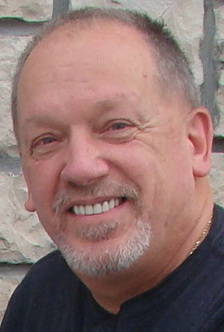During the past three weeks, you’ve been introduced to my friend, Peter.
My week-long adventure seven years ago that took me 752 miles north on a mission to visit a high school buddy serves as perhaps the single-most worthwhile excursion there has been for me. But it also contains some of the biggest regrets.
At the time, Peter had been battling the terrible effects of Parkinson’s for the better part of three decades — maybe more. But on Jan. 14, he succumbed to the horrible disease at the age of 61.
The news of his passing was bitter sweet. I was sad to see my friend go, but I was happy he would no longer have to deal with his daily challenges and struggles presented by Parkinson’s.
While my time with Peter — both during my visit seven years ago and those from our younger days — went flowing through my mind, the sadness went away. While his life certainly didn’t turn out the way he planned, the legacy he left behind and the life he managed to live still included many positives.
Peter never gave up because of the cards he was dealt.
The disease stole his physical abilities; it stole a marriage; it stole a career; and it stole a future. That’s the facts. But what it never stole was Peter’s positive outlook, along with a ready smile and mind that never stopped hoping for better.
He couldn’t change the channel on his television, but he could think about finding a cure for Parkinson’s. That was the range of challenges and possibilities he faced every day.
Those who were part of “The Gang” in high school, now scattered up and down the East Coast from Connecticut to Florida, often talked about Peter and kept each other up-to-date on how he was doing. Most of the time, the reports were positive, but now and then, they weren’t.
Such was the case just before this past Christmas.
The news spread quickly that Peter had been taken to the hospital, where he was in intensive care — and things didn’t look very good. He was having a lot of trouble breathing. Regular check-ins, however, soon revealed that Peter was getting better and within a week had been returned to his nursing care “home.”
We all exhaled a sigh of relief, thinking this was just another scare.
It wasn’t.
The evening of Jan. 14 was a typical Monday at my home. But right in the middle of a “Big Bang Theory” repeat, word came from Connecticut that Peter had died earlier in the day. “The Gang” shed some tears that day.
They say when you are faced with your own near-death experience, your life flashes before your eyes. The same is true with the death of someone close — except what flashes before your eyes are all of the times you spent with that person over the years. I immediately recalled our high schools days, softball games, heads stuck under the hood of his Capri, trips to the beach and weddings (his and mine).
And then the regrets begin to set in.
Why didn’t I visit with him more often? Why didn’t I return to see him after that 2011 trip? Why didn’t I tell him how much he meant to all of us? Why couldn’t I have done better than the regular cards and letters sent to him? Why?
There are no answers. They wouldn’t mean much, anyway. Peter is gone now, and there’s no doubt his death has left a noticeable hole in the collective heart of “The Gang.”
Life surely will go on, and it’s possible the silver lining left behind by Peter and the life he lived will be that we all honor living and each other better. And if we do, I feel sure he will smile that contagious smile as he watches down on us.
Peter never did find the cure for Parkinson’s, but I’m sure it wasn’t for a lack of trying. If that cure could have been found through the use of trigonometry, he’d have figured it out long ago.
Rest in peace, my friend.
W. Curt Vincent can be reached at 910-506-3023 or [email protected].

